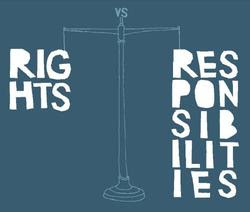 HOW TO MANAGE YOUR DIGITAL FOOTPRINT:
HOW TO MANAGE YOUR DIGITAL FOOTPRINT:
Here are some useful tips to help one
manage their digital footprint:
1.
Be aware of what
other people are saying about you online:
You can adjust
your account settings to have notifications sent to you when other people
mention you, tag you, like, comment or share content on your feed. You can also
enable approval rights when you are tagged in other people’s posts or photos,
so they don’t automatically appear on your timeline unless you’ve reviewed and
approved them.
2. Google yourself:
It may sound
narcissistic but if strangers are going to do it, you should too! Search for
your name every few months so you’re cognizant of the information others have
access to.
3.
Be sure – get a
second opinion on your profile pictures and text:
Ask a work
colleague or friend if they would do business with the person in your profile?
If not, change it and ask again.
4. Protect your personal data:
Don’t disclose
your personal address, phone number, passwords or bank card numbers. Consider
using a nickname instead of your real name.
5. Scale
back on social media:
Don't be on more social networking sites than you can handle. Keep the profiles you use
frequently and delete any accounts you don't update often.
6. Be
consistent and professional in what you say online:
Ensure your posts
are truthful, factual, something you believe and something appropriate for your
boss/parent/mentor to read. Operate under the assumption that nothing is
private or sacred on the internet. It’s almost impossible to delete something
permanently so if in doubt, don’t post. It’s also best to avoid getting drawn
into a heated debate online in a public forum, or even in ‘private’ exchanges
that could easily be shared unbeknownst to you.
7. Be current – have up-to-date information:
No matter what
stage you’re at in your career, whether you are looking to do business, build
your network or looking for a job – having up-to-date information on your
profiles will ensure that people will be able to contact you and know what
you’re about.
8. Be savvy – incorporate appropriate keywords in your profiles and
posts:
Think about what
words potential employers or recruiters would use in trying to find someone
like you in relation to what you do. Incorporating keywords in your profile
specific to your skills and job experience will help you get found in relevant
searches, and will point employers to your background or interests as they
relate to opportunities in their organization. It could also help you to expand
your networks by connecting you with like-minded people.
9. Be considered with your contacts:
You can and should
connect with whomever you like, but don’t feel the need to connect with people
you don’t want or need to, or keep connections if they are a detriment to you.
10. Be
accurate – check spelling and grammar in your profiles and posts:
Take time to check
that your profile information and posts include correct spelling and grammar to
maintain your aura of professionalism. It’s important to remember that poor
writing, no matter how casual the communication, can be a big turn-off to
someone checking up on you.
11. Be
clutter-free – close down accounts you don't need:
There is no point
in having accounts open or visible if you don’t use them.
12. Be thorough – check your profile
settings periodically:
Make a habit of
checking your profile settings periodically. Social networks are constantly
evolving their platforms and as a result their terms, conditions and management
settings may change too.
13. Be proud
of your achievements:
Include extra
information in your profiles about hobbies, interests, awards, volunteering and
charity work. Friends, employers and business networks will all be interested
to read about your other successes.
REFERENCES:
http://www.teachthought.com/the-future-of-learning/digital-citizenship-the-future-of-learning/11-tips-for-students-tomanage-their-digital-footprints/
http://au.hudson.com/job-seekers/career-advice/managing-your-digital-footprint
http://www.rasmussen.edu/student-life/blogs/main/your-digital-footprint/





Comments
Post a Comment